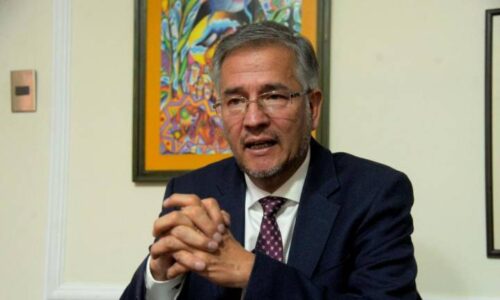

(Human rights and non-violence activist, co-founder of Ríos de Pie)
13 October 2021
Civic strike again, now what?
This Monday the country experienced a 24-hour strike that was felt mainly in the main cities. This national strike was carried out as a protest measure against Law 218, which, if enacted, would allow the investigation of bank accounts and the search of properties and businesses belonging to citizens due to a simple complaint, without a court order. Some opposition leaders considered this strike as successful, while the Government described it as a failure. The following day, the central government called for street demonstrations in what analysts considered as a clear response to Monday’s national protest. It is obvious that we are experiencing demonstrations of strength between the two main power groups in the country. The question that remains in the air for thousands of Bolivians, whether or not they participated in these demonstrations, is what now?
Law 218, like many other measures of the current Government, effectively violates the rights of citizens and we have every right to protest against it. In the same way, the demand for the release of political prisoners in the country and for respect and response to the indigenous march that the Government is ignoring, are also rightful demands. Precisely because our requests are legitimate and necessary, they must be demanded in a way that allows the constant and sustained participation of citizens. This should open the question of whether civic strikes are the most strategic way to continue to confront the Government’s abuse, or whether the country’s political leadership should begin to renew its forms of protest.
Non-violence as a strategic fighting technique indicates that there are three main methods or “types” of protest: persuasion, non-cooperation, and intervention. These three methods should be applied in a staggered manner and in sequence. The first, the persuasion method, are all the protests that are responsible for transmitting a message and adding numbers to the cause: in the case of Bolivia, we have recently seen them with the marches for the 21F (Referendum of 21-February-2016) or other types of rights, or with graffiti or symbol campaigns on the streets. Persuasion protests can be effective with one, ten, or a thousand people since the goal is to get a message across. This method should be useful to inform and unite the general public, before moving on to more massive methods of protest.
The second method, that of non-cooperation, is useful to interrupt the flow of power going towards the authoritarian opponent. As its name implies, non-cooperation protests are based on disobedience to unjust laws and therefore this method does need large numbers of people to be effective. An example that we have used in Bolivia is the work strikes since we stopped obeying the system. However, other forms of non-cooperation protests, such as the very effective economic boycotts or the denial of tax payments, have not been explored in the country.
The third and highest-risk method is the intervention protests method, which involves not only stop cooperating with the system but also intervening in the flow of power of institutions. Civic strikes, by including roadblocks, fall within this type of protest. The cost of protests of this type is very high for citizens, mainly because there is an economic loss not only for the opponent but also for whoever participates as well, therefore, they should only be carried out when the opposition actors are united and when there is a strategy with a clear exit to the solution of the problem.
However, opposition leaders in Bolivia, especially those who constantly call for civic strikes, do not have unity among themselves or a clear strategy of what the next steps should be; therefore, they are wearing down the general public, when we need them stronger. If there is an opposition strategy made in unity, it is not clear to the people themselves who are participating in the strikes, and that already does a lot of damage to the legitimacy of the cause. Going to constant strikes without a strategy is like giving chemotherapy to a patient directly without having a previous analysis or a treatment with drugs afterward. It may cause more harm than it is trying to remedy.
Bolivian citizens who very bravely abide by the strikes and protests of leaders they trust have the right to demand transparency, unity, and [a] strategy from opposition leaders. I dare say that the lack of political renewal in these parties is noticeable, because they continue to use the same three forms of protest from 30 years ago (marches, strikes, roadblocks) instead of learning new strategies and applying the more than 198 forms of protest that non-violence raises. Democracy must also be defended with new forms [of protest], new discourses, and new leaderships, always from [the point of view of] non-violence. Authoritarian governments never lose the power in battles they already know.
Source: https://www.paginasiete.bo/opinion/2021/10/13/paro-civico-de-nuevo-y-ahora-que-311969.html




